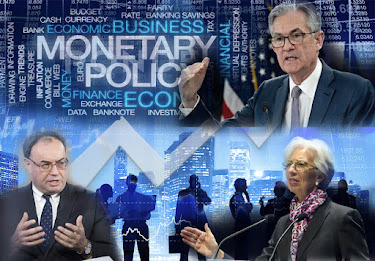Why Wishing 2023 for a Stabilized Economy will not be realized!

When economies confront problems such as inflation, deflation, unemployment and recession, mainstream economists and policymakers refer to the situation as macroeconomic imbalance. They also provide reasons for the imbalance and propose various policy actions to stabilize the economy back to the balance. In this analysis, macroeconomic imbalance is referred to the situation that the total supply of goods and services of the economy is not equal to its total demand. For example, central banks around the world state that present inflationary pressures are due to the demand in excess of the supply consequent to the stock of money expanded and supply bottlenecks during the pandemic time 2020-21. The reasons they mostly cite for the expanded money stock are the money printing and bank credit created to fund the government budgets/spending on fiscal stimulus to fight the pandemic. Therefore, almost all central banks have started raising interest rates to reduce the monetary/credit growth

